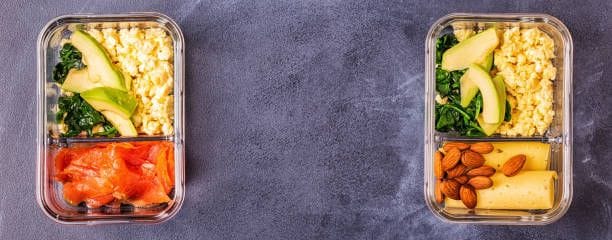Introduction
Achieving fitness goals requires not only dedication and hard work in the gym but also a thoughtful approach to nutrition. Pre- and post-workout nutrition play a crucial role in optimizing performance, enhancing recovery, and maximizing gains. Whether you're a seasoned athlete or just starting on your fitness journey, understanding how to fuel your body before and after exercise can significantly impact your results. In this blog post, we'll delve into the importance of pre- and post-workout nutrition and provide practical tips to help you create an effective fueling routine.
Pre-Workout Nutrition
- Timing Matters
Consuming the right nutrients at the right time is essential to fuel your body adequately for exercise. Ideally, aim to have a balanced meal 1 to 3 hours before your workout. This will give your body enough time to digest the food and convert it into energy.
2. Carbohydrates: The Energy Source
Carbohydrates are the primary fuel source for high-intensity exercise. Include complex carbohydrates in your pre-workout meal, such as whole grains, sweet potatoes, or quinoa. These foods release energy gradually, providing a sustained source of fuel during your workout.
3. Protein: The Muscle Protector
Adding a moderate amount of protein to your pre-workout meal can help prevent muscle breakdown during exercise. Lean sources of protein like chicken, turkey, tofu, or legumes can provide the necessary amino acids to support your muscles.
4. Stay Hydrated
Hydration is crucial for optimal performance. Make sure to drink water throughout the day leading up to your workout. Aim to consume an extra 16-20 ounces of water 1-2 hours before exercising. Proper hydration will improve your endurance and prevent dehydration during intense workouts.
5. Consider Supplements
While a well-balanced diet should suffice for most individuals, some might benefit from certain supplements like creatine or caffeine. Consult with a sports nutritionist or healthcare professional to determine if supplements are appropriate for your specific needs.
Post-Workout Nutrition
- The Anabolic Window Myth
The concept of an "anabolic window," where you must consume nutrients immediately after a workout, has been debunked by research. While immediate post-workout nutrition is essential, the window for optimal recovery extends beyond the immediate moments after exercise.
2. Protein for Recovery
Consuming protein after a workout helps repair and rebuild muscle tissue that undergoes stress during exercise. Aim for 20-30 grams of protein from sources like whey protein, Greek yogurt, eggs, or plant-based options like pea protein.
3. Carbohydrates for Replenishment
Replenishing glycogen stores in your muscles is crucial after intense workouts. Carbohydrates help in this process, and the post-workout period is an ideal time to consume them. Opt for easily digestible carbohydrates like fruits, white rice, or potatoes.
4. Don't Forget Healthy Fats
Including a small amount of healthy fats in your post-workout meal can help with nutrient absorption and provide a slow-burning energy source. Nuts, avocados, or olive oil are excellent options.
5. Hydrate, Hydrate, Hydrate
Rehydrating after exercise is just as important as staying hydrated before and during your workout. Drink plenty of water to replenish fluids lost through sweat.
Conclusion
Pre- and post-workout nutrition play a significant role in optimizing your fitness journey. Fueling your body properly before exercise ensures you have enough energy to perform at your best, while post-workout nutrition aids in recovery and muscle growth. Remember that individual needs may vary based on factors such as age, gender, fitness level, and exercise intensity. Experiment with different approaches to find what works best for you.
Before making significant changes to your diet or incorporating supplements, it's essential to consult a qualified sports nutritionist or healthcare professional. By combining smart training with a well-thought-out fueling routine, you can maximize your performance, achieve your fitness goals, and maintain overall health and well-being. Happy training!



